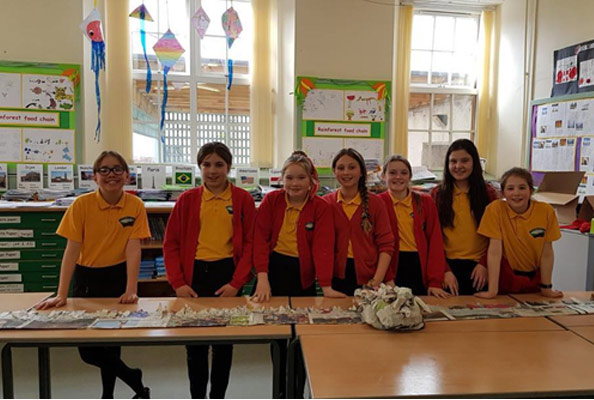The world is at breaking point. The vast majority of us consume with reckless greed, thoughtlessness, or ignorance. We throw away everything and barely stop to think about what really matters. We prioritise monetary wealth over the health of ourselves, our society and the world we live in. So, what is this consumption doing to the world around us?
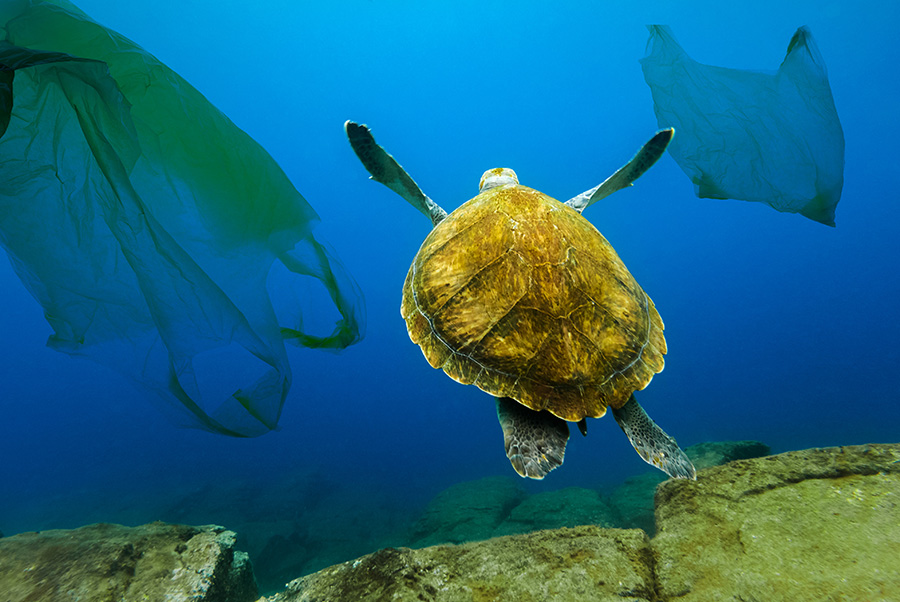
The oceans are full of fascinating life, from the much-loved bottlenose dolphin to the colourful sea slug to that which is waiting to be discovered and yet much of it has an uncertain future.
From plastic debris to overfishing, we are putting so many stresses on our oceans that they are at breaking point. Read on to discover some of the major problems that the seas face today.

By 2050 there will be more plastic than fish in the seas.

In 2016 alone, more than 20% of coral in the Great Barrier Reef died.

100% of sea turtles have been found to have plastic inside them.
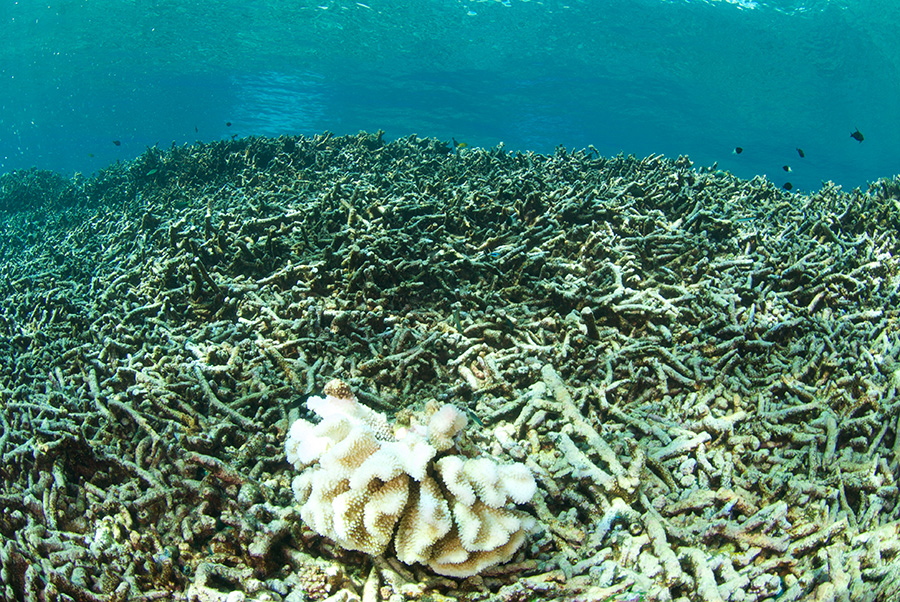
Human related activity, such as agriculture and burning fossil fuels has increased the amount of greenhouse gases in the atmosphere at an alarming rate. This is causing our earth to warm and most of this energy is absorbed into the oceans. A warming ocean is disastrous for many ecosystems.
Dissolved carbon dioxide in the ocean forms carbonic acid, corroding the calcium carbonate shells of so many organisms that produce these as skeletons. Many coral reefs have already died because they cannot form the skeletons required to protect them. In 2016 alone, more than 20% of coral in the Great Barrier Reef died. We face losing some of the most precious and vital habitats on earth if we fail to act urgently. With polar ice melting alarmingly fast, soon wildlife as we know it will not be able to cope and future generations will never get the chance to interact with such a diverse range of species.
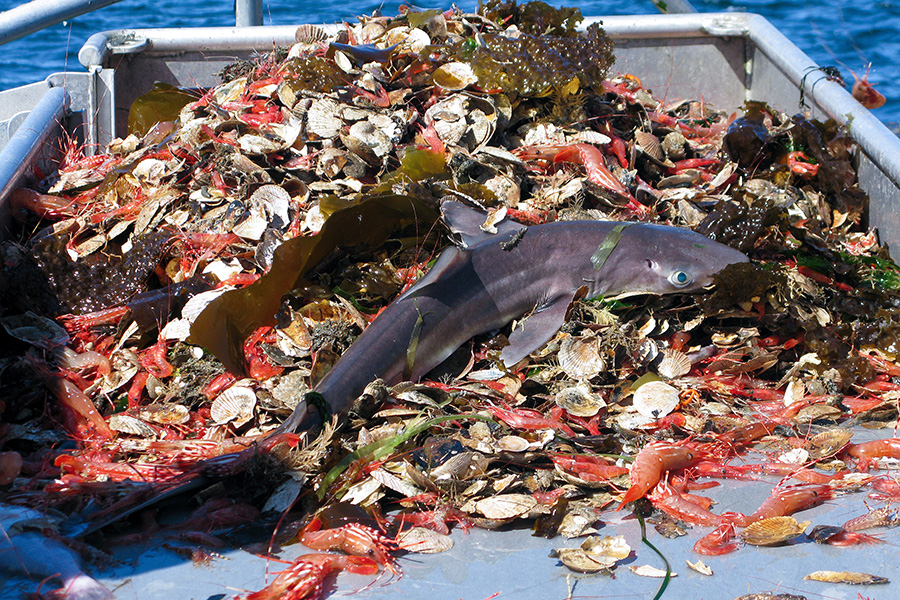
More than 80% of the world’s fish species are overfished. Destructive modern fishing practices and greed for profit with no thought into long-term sustainability have led to uncertainty as to whether the oceans can continue to sustain over 2 billion people that rely on them as their primary food source. Some fishing practices, such as trawling for prawns or other bottom-dwellers, destroy the whole seabed and have a scandalous ratio of bycatch, which is thrown back in the ocean, dead. These can never be sustainable or ethical ways of catching food and fish stocks worldwide have plummeted as a result.
Despite the massive progress in technology, since 1889, the amount of fish caught in UK waters has more than halved. Over half of the US’ examined fish stocks in 2010 were too rare for data to be reliable. Fishing boats are having to search farther and deeper for their once-plentiful catch, affecting ecosystems that were once thought to be well out of humankind’s reach. The length of hooked lines set out in the oceans every night is enough to wrap round the world five times over. Not only catching the desired fish, these lethal hooks are the death of albatrosses, turtles, sharks and even whales. Fishing practices have got to change rapidly to ensure future generations have access to this food source and it is up to consumers to demand this. (Callum Roberts)
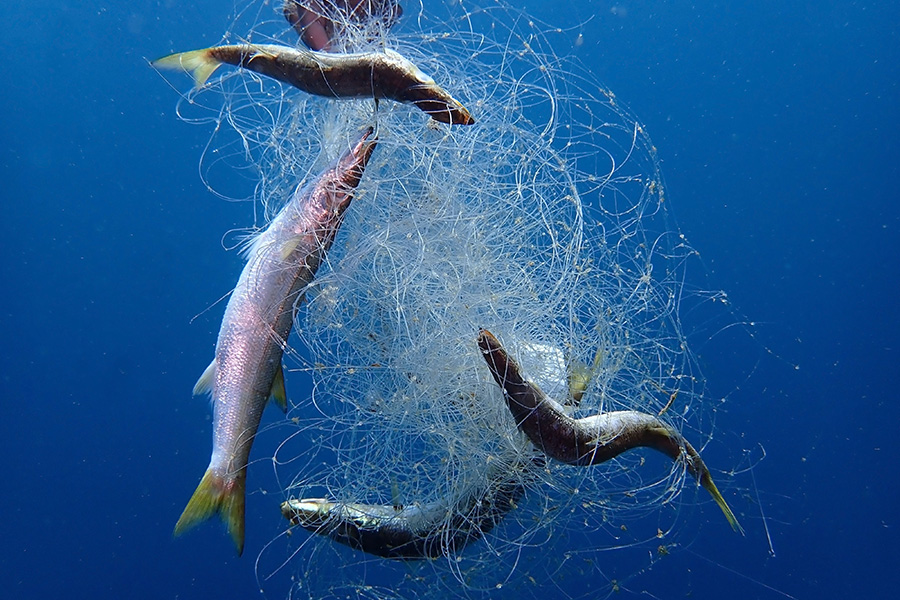
This fishing net was once drifting about in the open ocean, along with millions of others, sometimes miles long, which float abandoned in the seas. These nets pose snares to many already endangered marine creatures; sharks, turtles, whales, dolphins and seabirds are commonly entangled and then die of injury, drowning or starvation.
Termed ghost nets, this type of lethal pollution is becoming more widely recognised and considered a serious issue by many scientists. Once lost, the gear can ghost fish indefinitely as it does not biodegrade, with some nets recorded ghost fishing after 20 years. The fishing industry is growing and therefore the amount of gear discarded or lost in the ocean is increasing too. It is estimated that there are around 85000 lobster and crab ghost pots alone in the Florida Keys Marine Sanctuary and more data is required for a better idea of the impact of ghost nets worldwide. In the North Pacific alone, it is estimated that over 7000km of gillnet is lost every single year. Images of struggling seals or dead sharks entangled in such nets are becoming too common and with all the other dangers in the ocean, this is one too many. (NOAA)
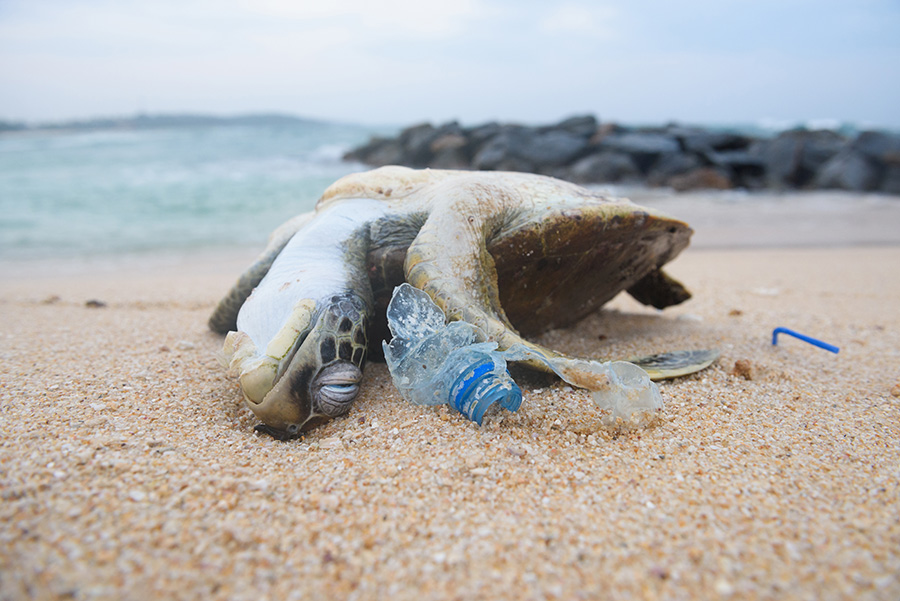
Plastic is clogging our oceans. It has been found in the deepest, most remote places, along coastlines and in huge floating soups in every ocean. It is estimated that around 12 million tons of plastic enter the ocean each year and that by 2050, there will be more plastic than fish in the seas. Once in the ocean, plastic is eaten by marine animals, who can then die of starvation. Bigger plastics are broken down over time into tiny fragments called microplastics.
These contain numerous toxic chemicals which work their way up the food chain and often cause fatal harm in the top predators- dolphins, seabirds and potentially us. Last time you ate fish and chips, sea salt or seafood you were more than likely eating microplastics. 100% of sea turtles have been found to have plastic inside them and for an already endangered species, this is disastrous. We have turned the home of millions of beautiful, innocent animals into a dumping ground for our waste. It is no longer possible to walk along a beach without spotting fragments of plastic hidden in the shingle. This is devastating.
Caring for the oceans is our responsibility and our duty to future generations. It is time to turn the tide on plastic pollution.
Find out some simple steps to get you started on the path to living sustainably.
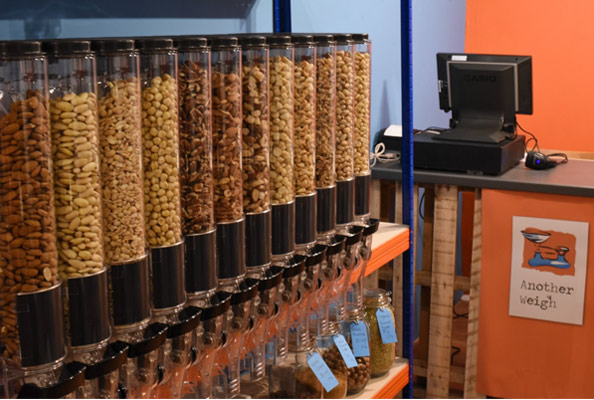
Join our growing community in pledging to make a difference in your daily routine.
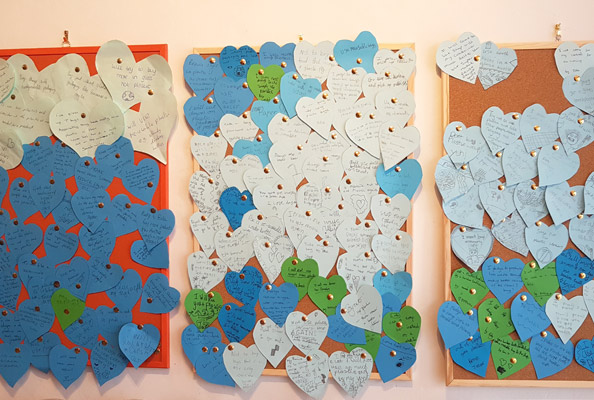
Do you have a community group or school that would benefit from our talks?
